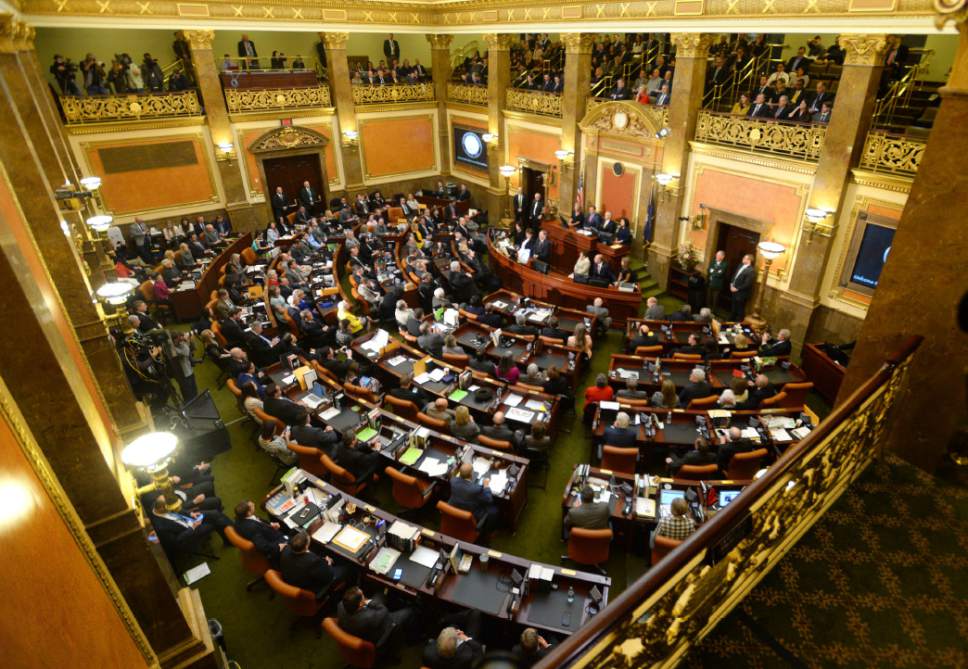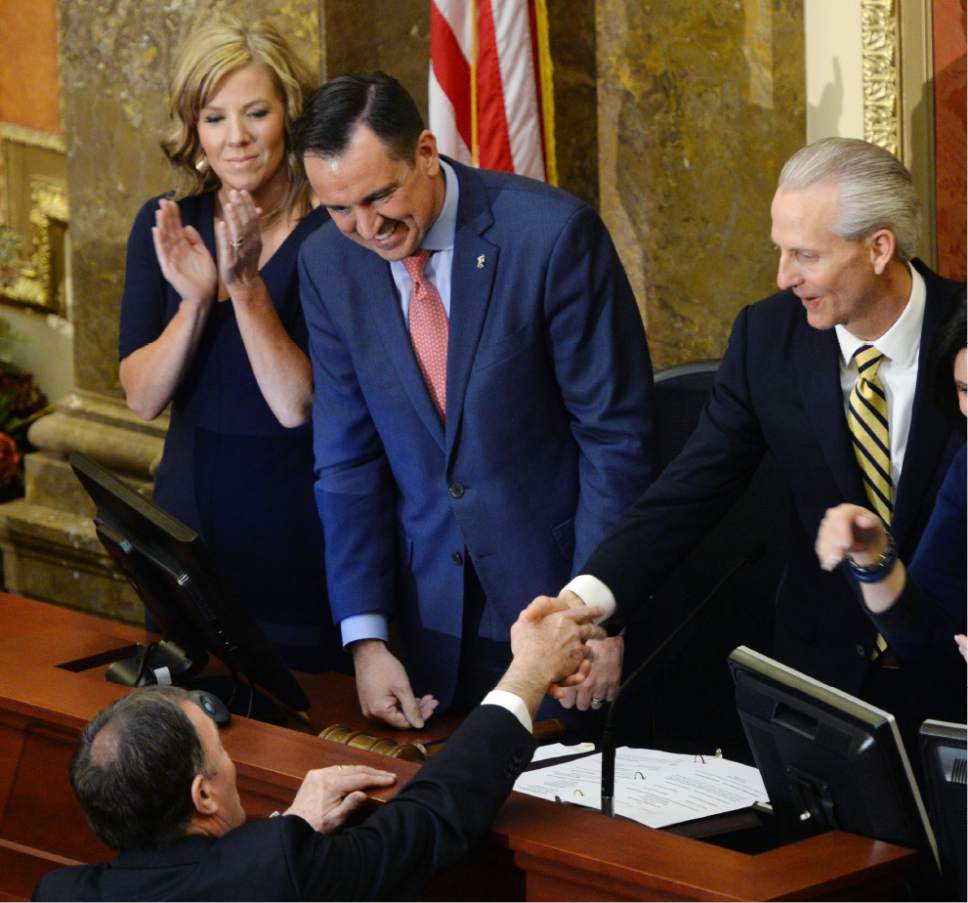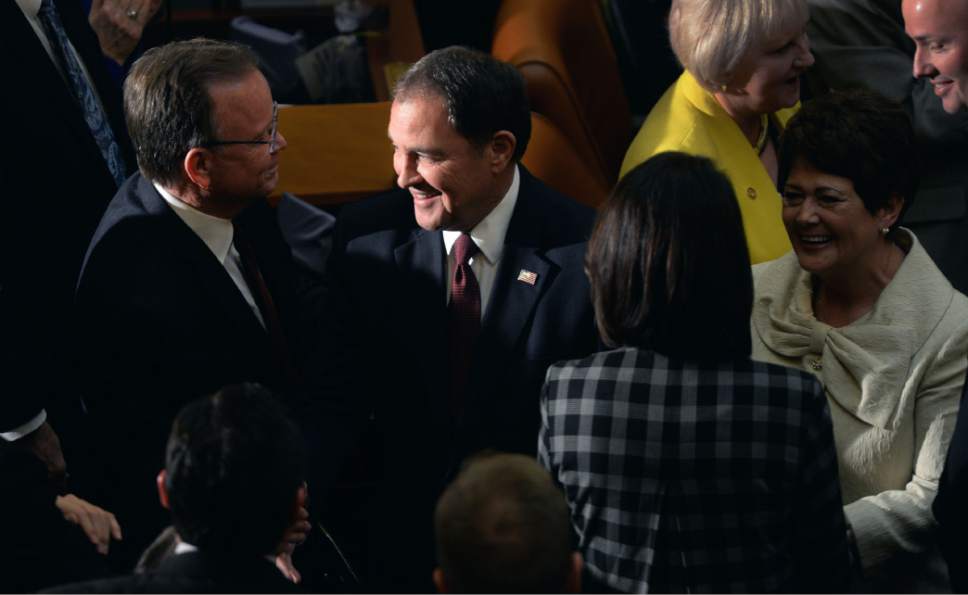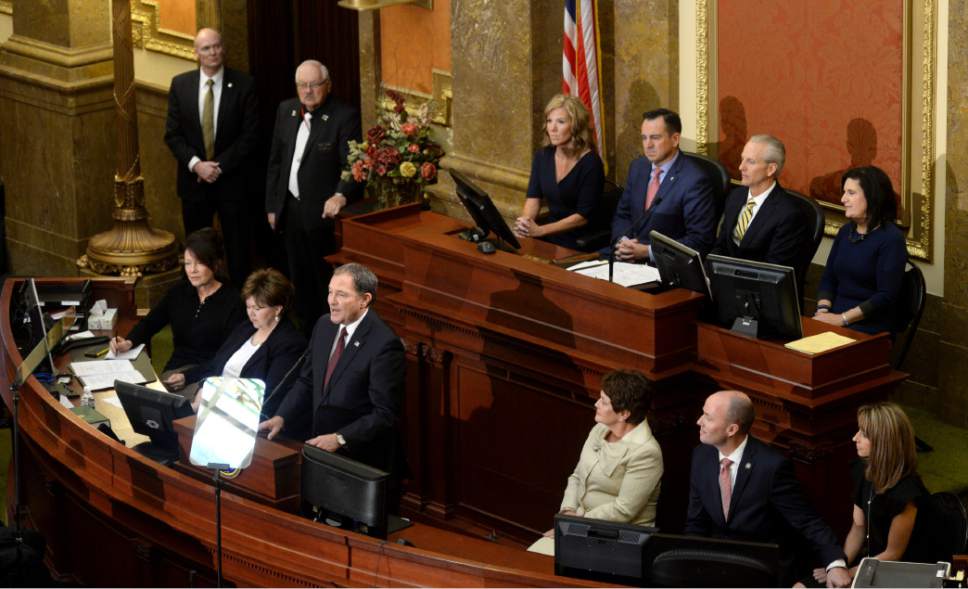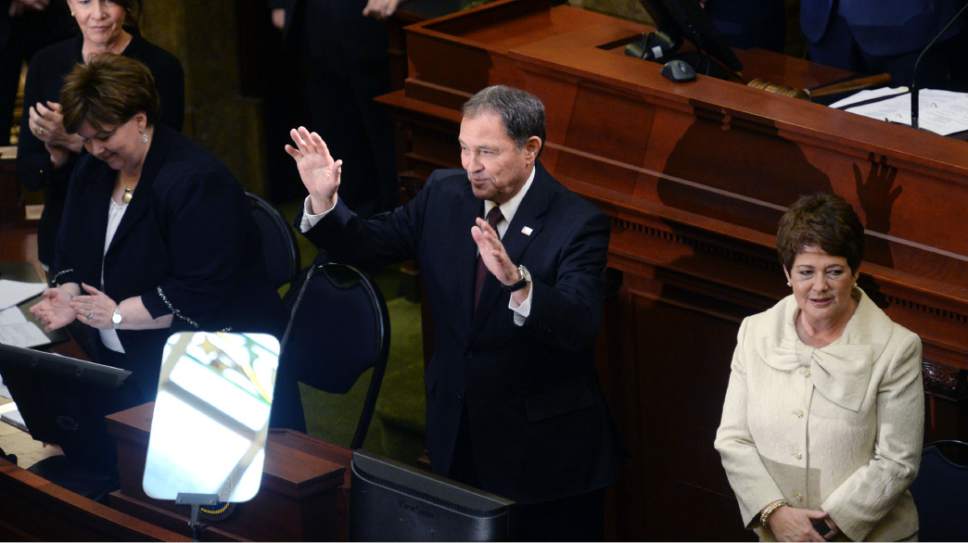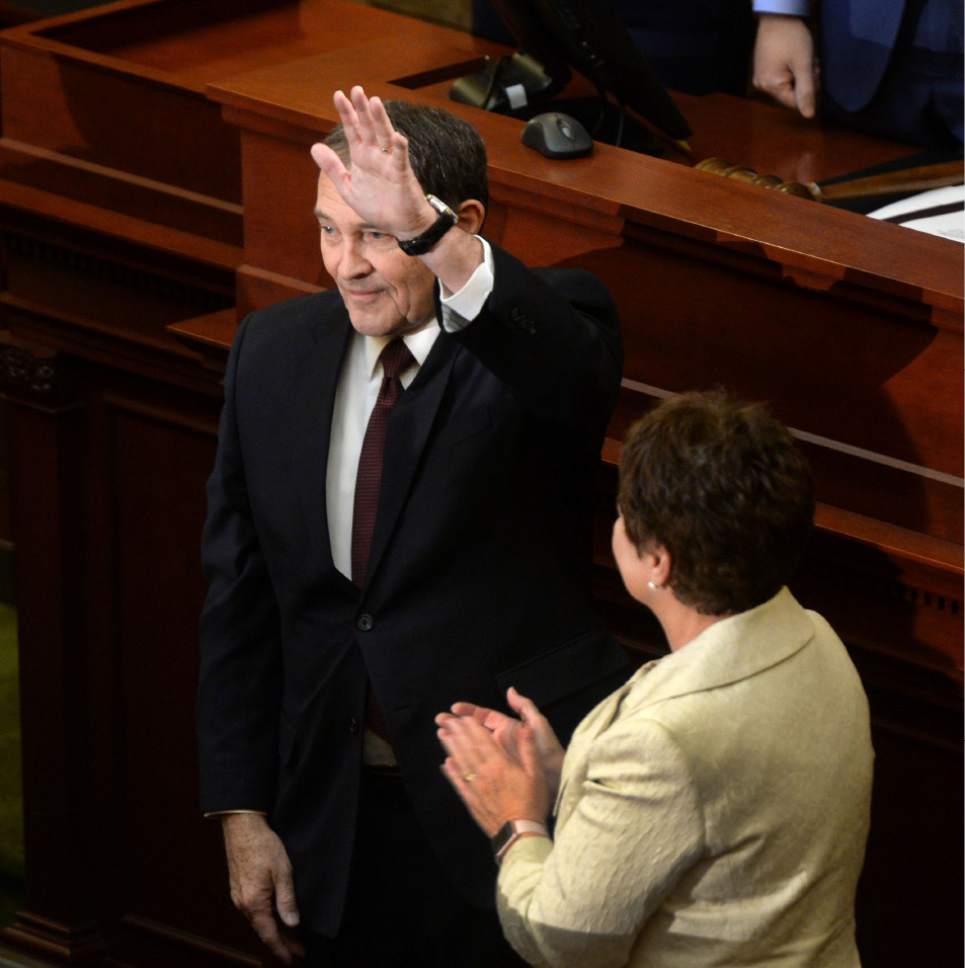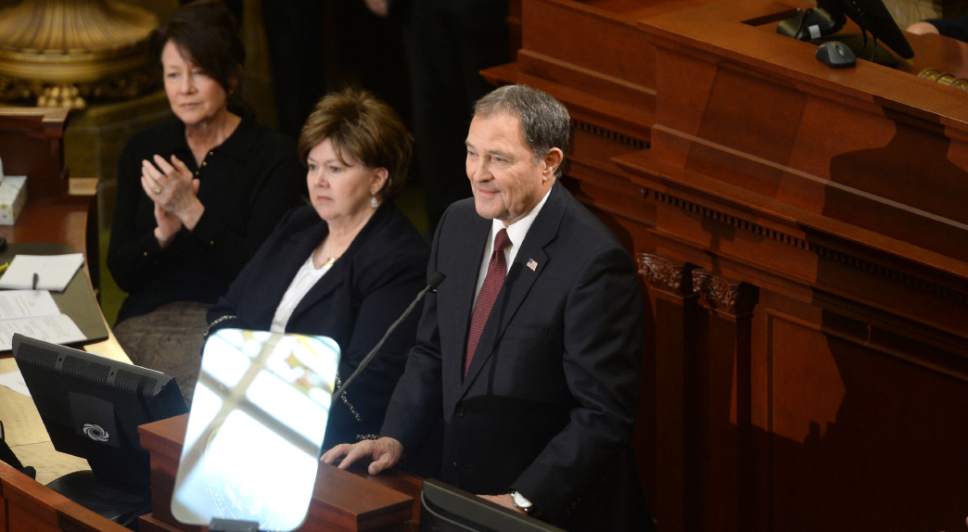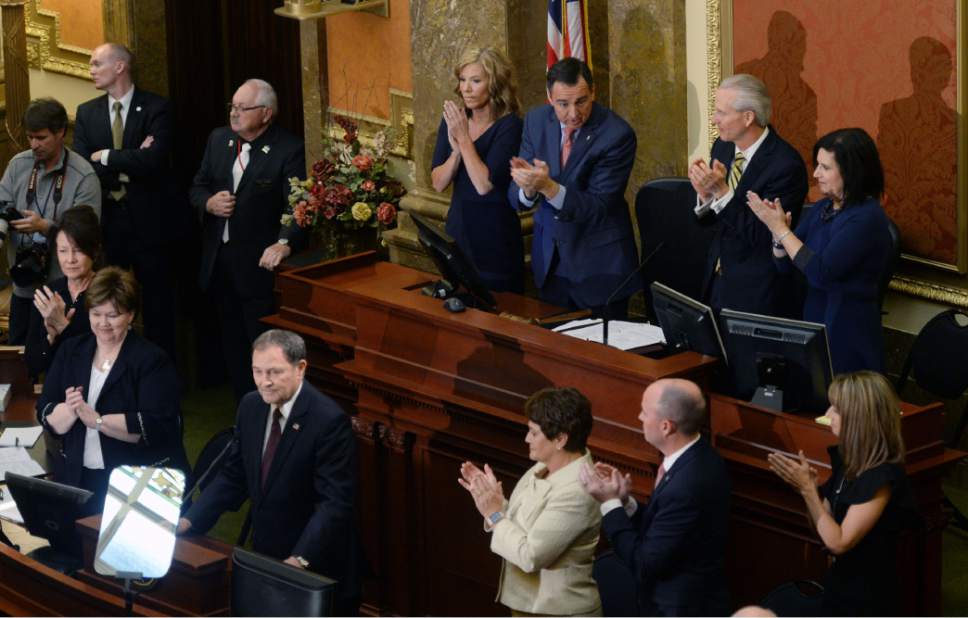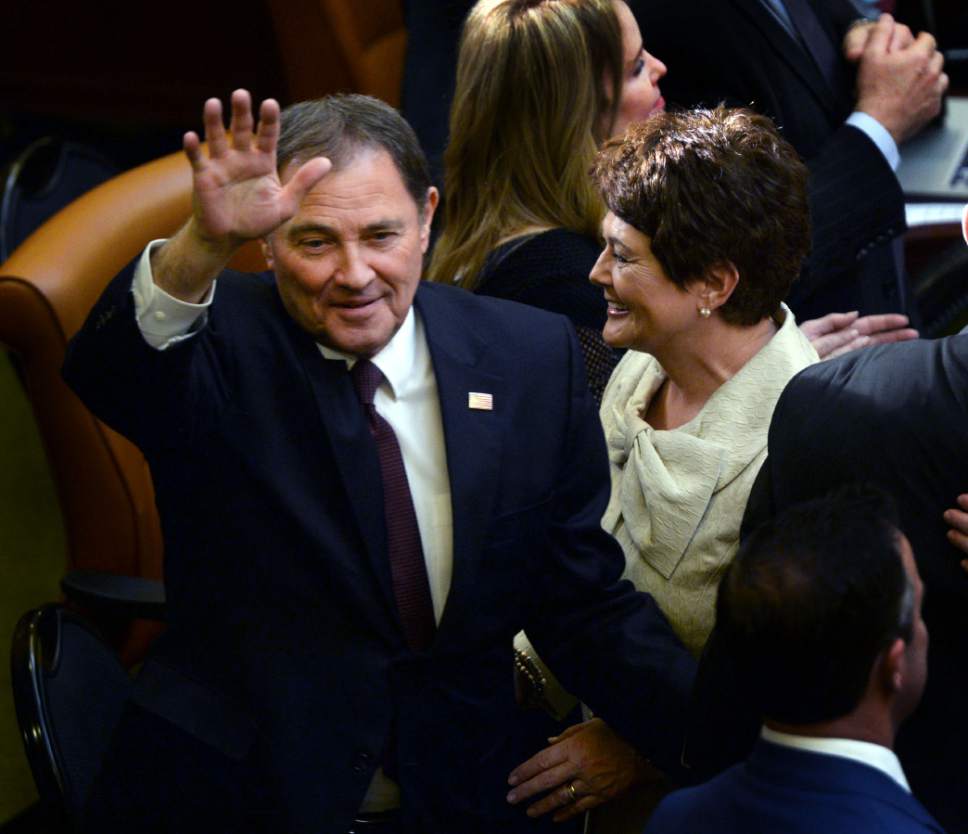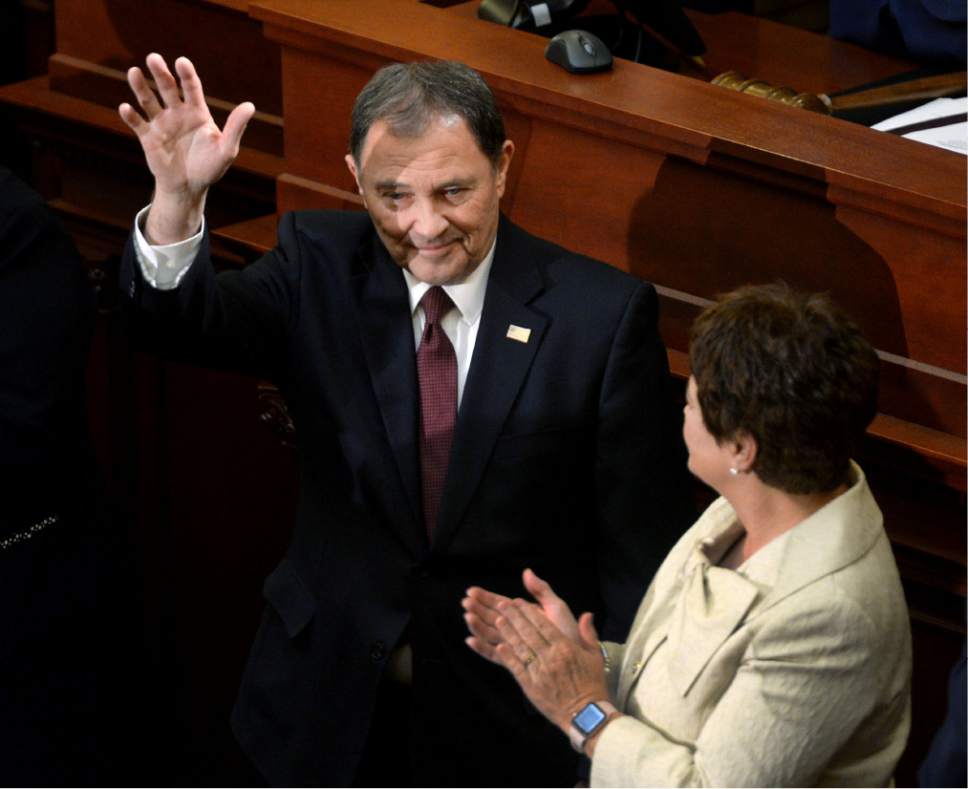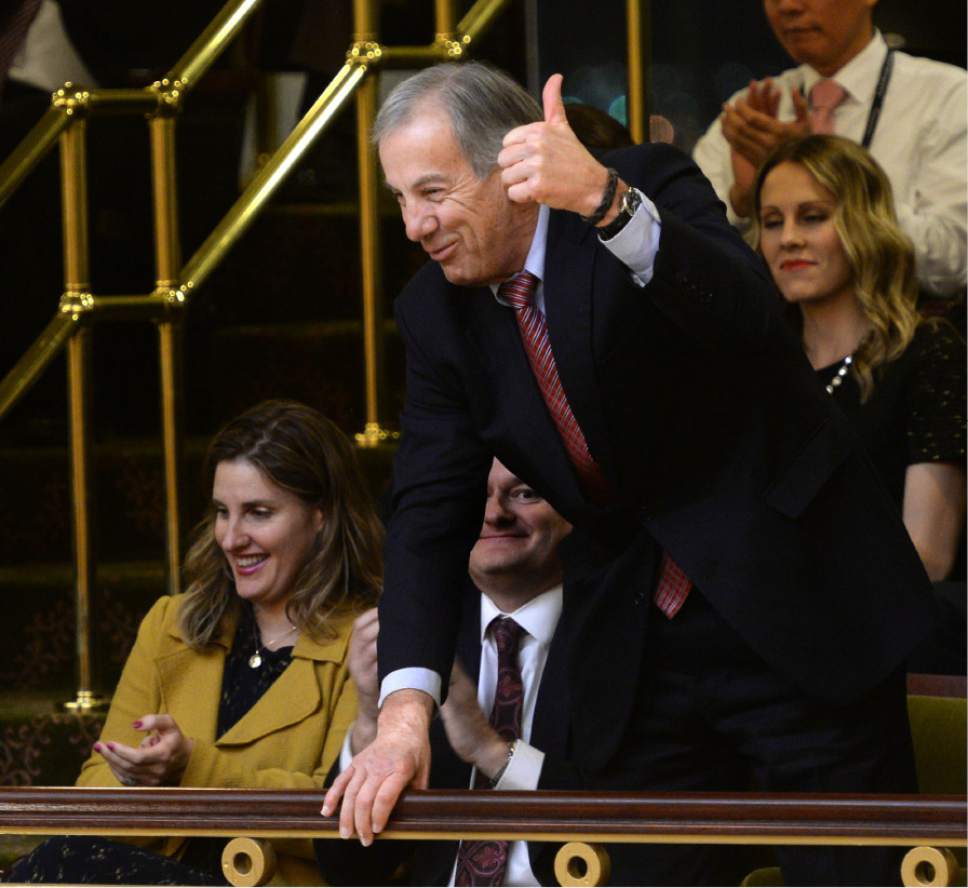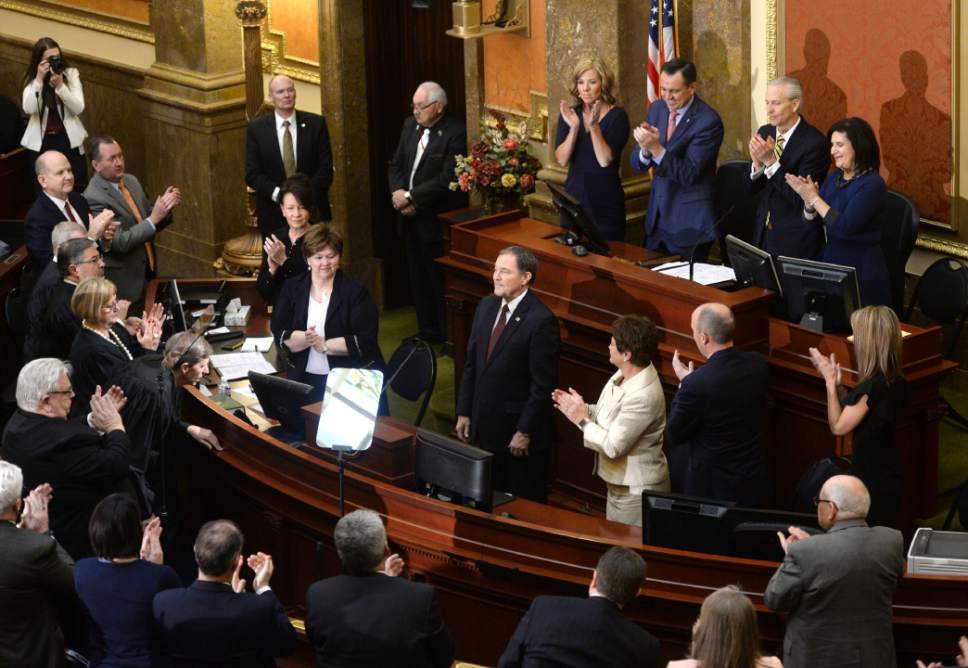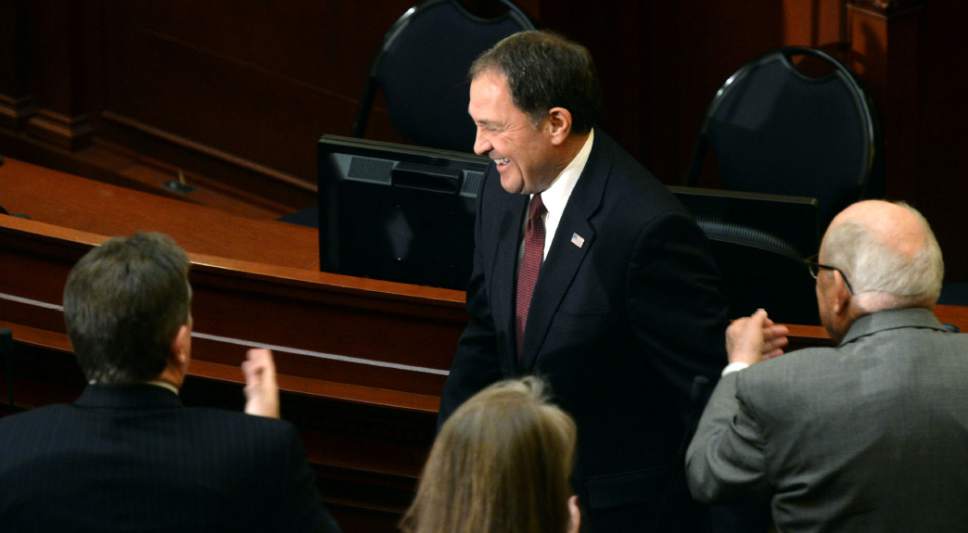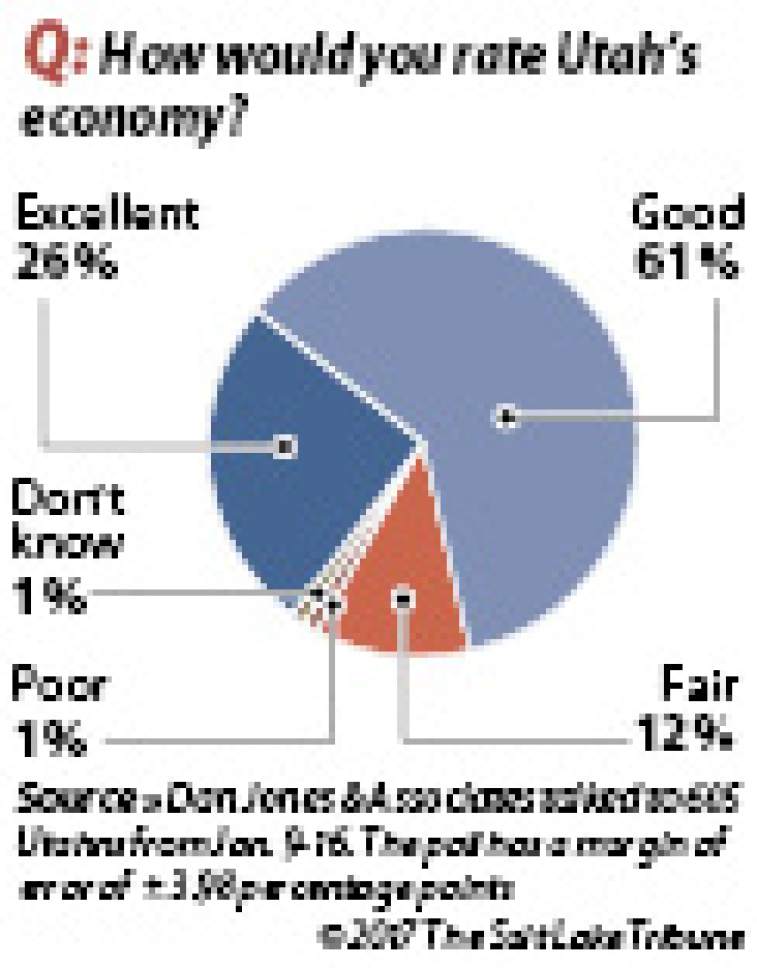This is an archived article that was published on sltrib.com in 2017, and information in the article may be outdated. It is provided only for personal research purposes and may not be reprinted.
Gov. Gary Herbert first took office as Utah was climbing out of the Great Recession. He says its economy and high-tech businesses are now creating jobs so fast that the state doesn't have enough qualified people to fill them.
So he announced during his State of the State speech Wednesday a new program called Talent Ready Utah to recruit businesses to partner with schools to guide students through proper training and education early, provide internships and invest in education.
"We anticipate that Talent Ready Utah will help fill 40,000 new high-skill, high-paying jobs over the next four years," Herbert said.
Herbert highlighted the program as he called for continued efforts to improve education, homelessness, drug use, air quality and liquor laws — including removing the "Zion Curtain" preventing restaurant patrons from seeing drinks mixed. He also celebrated improvements that he said have made Utah's economy one of the nation's hottest.
"I can say emphatically that the state of our state is exceptional." Still, he said, "We need to get on top of intergenerational poverty, teen suicide, homelessness and addiction. We need to be at the top of the nation in student achievement… We need to continue to clean up our air."
Herbert joined the push to solve what House Speaker Greg Hughes earlier this week called a crisis with homelessness.
"I also recognize that the state has a role in addressing this problem, " he said, and pledged to help.
Democrats said Herbert failed to mention many of the issues most important to them and the state's workers: increasing minimum wage to a living wage; assuring equal pay for equal work; implementing paid family leave; and improving access to health care.
"The working people are being bent to the breaking point," said House Minority Leader Brian King, D-Salt Lake City, calling for concrete action to provide health care access to people who don't qualify for Medicaid. And he questioned, "Why should working Utahns bear the revenue losses associated with the tax loopholes that the Legislature gives to lure corporations to the state?"
And while Sen. Gene Davis, the Senate minority leader, applauded the governor's repeated calls for improving education and funding, he said the time for talk is over.
"It is time rubber hit the road and we actually do something about it," he said.
—
Education • The governor spoke in support of more resources for education, but opposed the Our Schools Now initiative — without mentioning it by name — that seeks to put on the ballot a $750 million increase in state income tax for schools.
Raising income taxes could hurt the recovering economy and, in the end, hurt school funding.
"The very best way to ensure ongoing growth of education funding is to continue to grow our economy. Failure to take into account how tax rates affect business investment won't help us make good policy decisions," he said.
Herbert suggests instead other ways to raise revenue for education, including collecting the estimated $150 million to $200 million in tax on internet sales that is technically owed but rarely paid by residents if not collected at the time of the purchase.
Herbert also called for possibly removing many of the mushrooming sales tax exemptions. "In 1996 there were 48 sales tax exemptions; today, there are 89. In that same period income tax credits have more than tripled — from 12 to 38."
He urged "a thorough legislative review of each and every tax exemption and tax credit to examine whether it has outlived its usefulness."
A similar review during the administration of then-Gov. Mike Leavitt succeeded in removing only a handful of such tax breaks against heavy pressure from affected industries.
—
Alcohol • The governor praised yet-to-be released legislation by House Majority Leader Brad Wilson that seeks to modernize liquor laws, including removing the co-called Zion Curtain.
Herbert said that bill is much more than removing that wall, and will "focus on education, prevention and enforcement practices that are proven to further reduce underage drinking, alcohol abuse and impaired driving."
He added, "I believe we can do this without stigmatizing how responsible adults purchase and consume alcoholic drinks in dining establishments, and I believe we can do this without blurring the important distinction between restaurants and bars."
Davis, D-Salt Lake City, said he was stunned that Herbert would back legislation to end the Zion Curtain. "It's the first time I heard a State of the State [address] that even raised the existence of alcohol."
—
Air quality • Herbert said the state will seek to improve air quality by fast-tracking the arrival of cleaner fuels and cars, and by trying to get Utahns to travel less and conserve more.
He said the state is studying how best to use $35 million from the Volkswagen settlement, over that company's violation of federal clean-air laws, to help clean Utah's air.
"Those discussions should include replacing high-polluting diesel engines, including those in our older diesel-burning school buses," he said.
He said he will soon take a tour to highlight actions statewide that are helping to clean air pollution, including visiting refineries producing cleaner fuel.
"Along the way, I will also visit those organizations that need a little extra encouragement to help make measurable improvements."
He urged Utahns to "redouble our collective efforts because we shouldn't have to climb to a summit in order to breathe clean air."
—
Economy • Herbert also celebrated improvements in the Utah economy since the dark days of the Great Recession when he took office.
"Our climb has been arduous, but the height that Utah's economy now occupies is remarkable," he said. "Last year, Utah had one of the fastest-growing technology sectors in the nation, and Utah businesses added more than 43,000 jobs."
Like Herbert, Utahns give high marks to Utah's economy.
A new Salt Lake Tribune-Hinckley Institute of Politics polls shows 87 percent of registered voters say the state's economy is excellent or good; 12 percent say it is fair; and only 1 percent say it is poor.
The more education residents have, the brighter the economy looks to them. The poll showed that 90 percent of voters with at least a bachelor's degree say the economy is excellent or good, while only 74 percent of those with just a high school degree do and just 63 percent of those with less than a high school degree.
The poll, conducted Jan. 9-16 by Dan Jones & Associates, surveyed 605 Utah voters. It has a margin of error of 3.98 percentage points.


